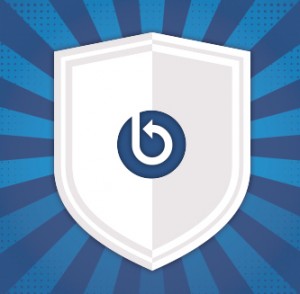Backing up the data on your computers and mobile devices is, of course, important. Hardware and software can be replaced, but data, once gone, is … well, gone.
The process of backing up the data on your computer (and data from any mobile devices that you synched to it) can be straightforward and affordable. Almost everyone has done a local backup to an external hard drive, CD/DVD/BluRay, or even copied files to a USB flash drive. Some of you might have even used online services like BackBlaze.com, Carbonite.com or Mozy.com to name a few.
Fortunately, there are also third-party services available if you want to make sure your online files are safe and sound. Here’s a look at some of the sites and services offering social backup, either downloading to your computer, or to another location in the cloud. Some are B2B (Business-To-Business) with a high price tag, others are B2C (Business-To-Consumer) offering affordable accounts for individuals. The key here is to pay attention to what a given solution does. Some, for example, may be easy to browse and search your data online, but won’t let you do a “restore.” Other back up services may only save a portion of your data — or you may have to do several different types of saves in order to back up everything.
Built-In Backups: When “Good Enough” is Good Enough
Many of the social network and cloud services include some degree of backup. While this is usually more than enough protection even in the event that the online service gets hacked, if there is a problem with your account or the service, these backups may not cut the mustard. Facebook:
Facebook:Facebook lets you download your Timeline, from your SETTINGS page. Your Timeline, according to Facebook, “contains posts you have shared on Facebook, along with comments and other interactions from people. Additionally, you can find your message and chat conversations by going to your inbox, or photos and videos you have added or been tagged in.”
(There are also third-party Facebook backup service offerings, see below.)
Twitter:
Twitter announced their own backup service, earlier in 2014, free of charge at the time of this writing. (Which, for better or worse, seems to have caused many of the third-party Twitter-backup-offerings to have gone away.)
Twitter lets you get a copy of request a copy of your “Twitter archive,” which, according to Twitter, means Twitter will create a zip file that’s a “a snapshot of your Twitter information, starting with your first Tweet,” and send you a link so you can download and browse the file.” One important item of note is that Twitter advises, “It may take a few days for us to prepare the download of your Twitter archive.”
Advice: Consider requesting this periodically — perhaps once a month if you are concerned about having a backup of your Twitter activity.
 LinkedIn:
LinkedIn:Your LinkedIn account includes several types of data and activity, including contacts and messages. Currently, LinkedIn doesn’t offer any comprehensive way to back up or export all your data — and LinkedIn’s periodic site changes means that whatever it does offer can go away or be hidden elsewhere at any time.
As of June 2014, LinkedIn lets you export your Contacts data, in either CSV or VCF format. And you can save your Profile data manually — by going to that page, and copying/pasting the text to a file.
Gmail, Google Plus, and other Google Accounts:
Google lets you download an archive of your Google services activity — except for Gmail. For Gmail, you can either download messages using a POP (Post Office Protocol) mail client — here are instructions from Google — or you can use a third-party tool like GMVault.
WordPress (and other blogs):
Like social media accounts, a blog account includes your profile, any template or other format specifications, as well as blog posts, photos and other multimedia, and possibly comments, tags, and more. Typically, that means that from the “inside,” your blog comprises one or more databases, plus lots of individual files.
WordPress includes several manual and automatic ways (some, using plug-ins) to do backups (see WordPress Backups, http://codex.wordpress.org/WordPress_Backups). For example, WordPress Backup To DropBox (http://wordpress.org/plugins/wordpress-backup-to-dropbox/) backs up to your DropBox account.
 Add-Ons and Third-Party Backup Services
Add-Ons and Third-Party Backup Services
There’s no shortage of free or affordable backup services from other
providers offering to back up your social media content — and also some
pricier, business-oriented ones (essential if you’re in a regulated
industry like medical or financial services, where all communications
have to be saved and archived).On the other hand, there may not be a backup for the social media or cloud service that matters to you, or it may not offer all the features you want. The main reasons: the service may not publicize its APIs, making it hard for third-parties to create backup solutions … and there may not be enough demand (revenue) to justify and sustain a given solution.
Here’s some of the many available:
ARCHIVEFACEBOOK is a free Firefox add-on that lets you save stuff from your Facebook account, currently including messages, photos, activity stream, friends list, notes, events, and groups.
BACKUPIFY provides automated data backups for Google Apps (Google Mail, Drive, Calendar, Contacts, and Sites) and SalesForce.com, and also for Facebook Business Pages and corporate Twitter accounts. (The company plans to add support for more cloud services as 2014 progresses.) While Backupify is intended as a B2B service, you can also buy a more affordable single-user account. Pricing for Google Apps starts at $3/month/user; for 10 Facebook Business Pages and corporate Twitter accounts, $99/month.
FROSTBOX ($6.99/month or $69.99/year) a bunch of your social media and cloud accounts. The current list: Facebook, Twitter, Gmail, Linkedin, Flickr, Instagram, Foursquare, Tumblr, and Evernote.
INSTAPORT lets you save all your Instagram photos to your computer. (Not full resolution, and only up to 500 tagged photos.)
SOCIALSAFE downloads social media content to a combined, searchable journal database on your Windows/Mac computer — not just your accounts, but also postings that mention/tag you. Currently, SocialSafe works with your Facebook account and pages, InstaGram, Twitter, LinkedIn, Google+, Pinterest, FlickR, Viadeo and blogs. Pricing is free for up to four social media accounts if all you want to do is backup/view your data. Premium accounts let you also create PDFs, organize, get stats, and more: $6.99/year for up to four accounts, $16.99/year for up to 10 accounts, $27.99/year for up to 20.
Conclusion: Don’t Just Assume Your Data Is Safe — Do Something
As you can see, there’s no shortage of free-to-affordable ways to backup/archive your social/cloud data. The trick will be to pick one that matches your needs — which depends on your accounts, your tech experience, your budget, and your time for non-automated backups.There is no shortage of options for backing up your online activities. The only choice that shouldn’t be a choice is to do nothing.
Be sure to take your backup choice(s) out for a spin — including checking whether you can obtain and look at the archives, and, if appropriate, perform a restore.
visit
http://www.notebookreview.com/howto/how-to-back-up-your-socialcloud-data-facebook-twitter-gmail-and-more/

0 comments:
Post a Comment